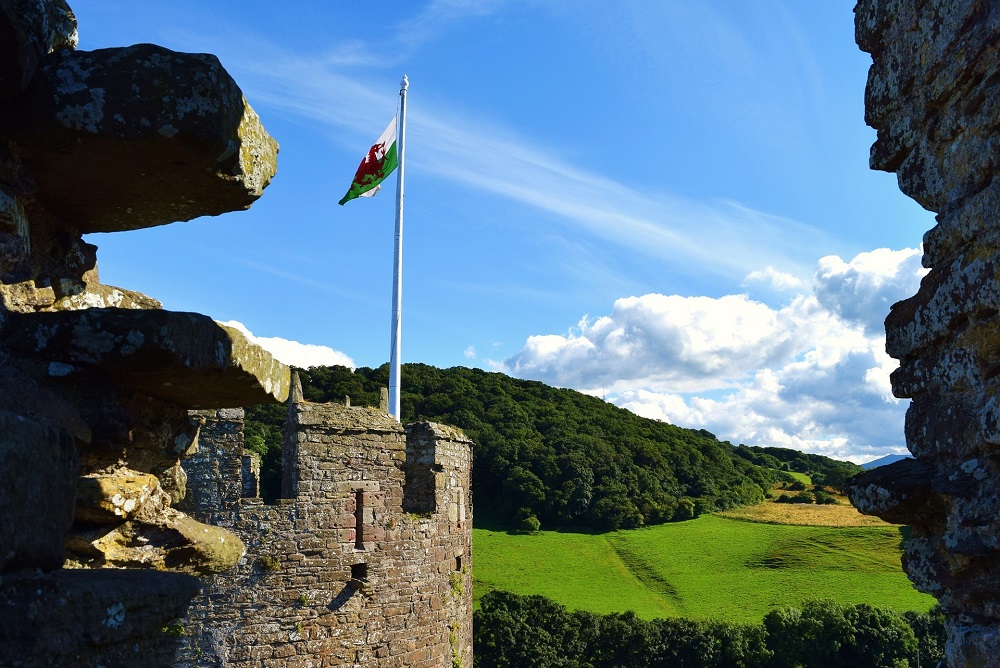Why we must not allow the constitutional debate over Wales’ future to highjack our national history

Rhys Owens
Independence is becoming a hot topic in Wales. After years of watching the Scottish constitutional debate gather speed and eventually define Scottish politics, often at the expense of all else, Wales is now beginning to take a serious look at its future relationship with the United Kingdom beyond the traditional lines drawn by the devolution project.
It’s an exciting moment. An opportunity for the people of Wales to consider their aims and priorities for the future, and the best vehicle for achieving them.
But with these big political debates come unavoidable questions. How will history be used to inform the debate? And can we trust politicians who seek to use history for their own contemporary aims?
Using history to justify a political point is nothing new and, I would add, not in itself negative. Harold Wilson as Prime Minister was known to appreciate a “sense of history” in decision-making, and it is undoubtedly true that understanding the past can inject a sense of proportion into political debates and an evidential underpinning to policy.
But there is always a risk when we allow our political desires and aims to overtake what is a professional activity: interpreting and presenting the past. As we enter into a history-defining moment, we cannot allow our decisions to be based on a flawed understanding of the history we’ve already created.
The constitutional debate on Wales’ future presents a number of risks in this area, several of which have been present in the existing debates on devolution for many years. The most obvious, and the one I would like to focus on here, is the issue of identity and perceptions of what it means to be Welsh – what would often be described as the emotional argument for a political position.
Contribution
To start with a common refrain of those who support independence, Wales over the centuries has been nothing more than a colony of England, a victim of imperial oppression, and a nation forced into an unnatural alliance within the artificial framework of the United Kingdom.
That’s an opinion and there’s nothing wrong with it. But it is not a relationship with Britain’s imperial endeavours that the great number of Welsh people in the 18th, 19th, and early 20th centuries would have recognised.
A previous writer in this publication argued that there was a ‘duality’ when it came to Wales’ imperial past between colonised and coloniser, though the evidence would suggest that the majority of Welsh people during this period would have regarded themselves firmly as colonisers.
Far from seeing themselves as victims of empire, the Welsh generally considered themselves to be an integral part of the Mother Country, an imperial people alongside the other British nations, and sought to define their contribution and special place within it.
Whether it be through the celebration of the relief of Mafeking in 1900, the adoration of imperial ‘heroes’ such as Baden-Powell and Morton Stanley, or the huge reaction to the investiture of the Prince of Wales in 1911, the Welsh embraced their British imperial identity alongside their Welsh identity, and the former often bolstered the latter.
Nuance
The anti-independence, or indeed anti-devolution, rebuttal would be that Wales is an essential part of the UK, that they have engaged in a partnership with England over many centuries that developed gradually and naturally.
They make the argument from history that in practice the distinction between Welsh and English is a forced political one.
Again, this is an acceptable opinion, but again, this affiliation with the English does not so easily fit into the historical record. Whilst a British imperial identity has certainly dominated over the centuries, this does not mean that the Welsh conception of Britishness waived the distinction with Englishness.
Wales has long been regarded by its people as a nation in its own right, and debates over home rule would have been instantly recognisable to the Welsh of the 19th century. Distinction in sport, in language, and in culture have been recognised and celebrated by the Welsh for many centuries.
What I would consider to be the headline story of Welsh identity over the imperial period was its ability to comfortably nuance itself as separate to Englishness, but within the broader framework of an imperial Britishness of which it was deeply proud – something particular present in Welsh Patagonians of the late 19th and early 20th centuries.
History can and does inform our politics. However, we must recognise that when interpreting the past we have a duty to interpret honestly and not to treat it as a tool for our own purposes.
In these times of culture wars, protecting the professionalism of history is surely a top priority.
Support our Nation today
For the price of a cup of coffee a month you can help us create an independent, not-for-profit, national news service for the people of Wales, by the people of Wales.






